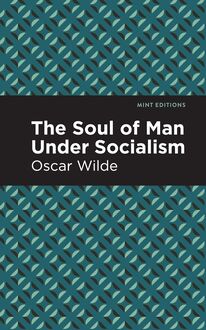-
 Univers
Univers
-
 Ebooks
Ebooks
-
 Livres audio
Livres audio
-
 Presse
Presse
-
 Podcasts
Podcasts
-
 BD
BD
-
 Documents
Documents
-
- Cours
- Révisions
- Ressources pédagogiques
- Sciences de l’éducation
- Manuels scolaires
- Langues
- Travaux de classe
- Annales de BEP
- Etudes supérieures
- Maternelle et primaire
- Fiches de lecture
- Orientation scolaire
- Méthodologie
- Corrigés de devoir
- Annales d’examens et concours
- Annales du bac
- Annales du brevet
- Rapports de stage
La lecture à portée de main
Vous pourrez modifier la taille du texte de cet ouvrage
Découvre YouScribe en t'inscrivant gratuitement
Je m'inscrisDécouvre YouScribe en t'inscrivant gratuitement
Je m'inscrisEn savoir plus
Vous pourrez modifier la taille du texte de cet ouvrage
En savoir plus

Description
Ruth is a young orphaned girl who works in a sweatshop. Mrs. Mason, Ruth’s boss, runs the sweatshop in a respectable manner, earning a sterling reputation among her employees and society. However, the comfort and acclaim of Ruth’s job is threatened when she attends a ball to repair any dresses that get torn during dancing. There, she meets an aristocratic man named Henry Bellingham, who is infamous for his immoral treatment of women and frivolous spending. Ruth, however, is blinded by his charm, and after they have another chance encounter, befriends the man. When they are spotted together, Ruth’s reputation is at stake as rumors start to fly. Worried about the gossip harming her sweatshop Mrs. Mason fires Ruth, leaving her with nowhere to go. With no other viable options, Ruth accepts Henry’s invitation to go to London. Now considered a fallen woman, Ruth’s reputation seems to be in a state beyond repair, though, while she stays with Henry, she is protected by his privilege. Held to lower standards by society, Henry is slightly looked down on, but his wealth and gender protects him from actual consequence. Perhaps that is why he finds it so easy and acceptable to leave Ruth, stranding her in Wales with a small allowance and tarnished reputation. Hopeless and pregnant, Ruth slips into a deep despair. It is only at the mercy of a kind local family, the Benson’s, that Ruth is able to continue living. With their help, Ruth creates a new alias and backstory to live under, and is able to get a job and start to rebuild her social status. However, when Henry makes a surprise return, and rumors start to grow once again, Ruth must overcome illness and social disgrace to provide a better life for her son, and for herself.
With strong characterization and themes of morality, gender, and sexuality in Victorian society, Ruth by Elizabeth Cleghorn Gaskell provides a compelling glimpse into the hypocrisies of social expectations while depicting a moving narrative that captures both the audience’s mind and heart.
This edition of Ruth by Elizabeth Cleghorn Gaskell is now presented in an easy-to-read font and features a striking new cover design. With these accommodations, modern audiences are provided a lavish and accessible reading experience.
Sujets
Informations
| Publié par | Mint Editions |
| Date de parution | 09 février 2021 |
| Nombre de lectures | 0 |
| EAN13 | 9781513276380 |
| Langue | English |
| Poids de l'ouvrage | 3 Mo |
Informations légales : prix de location à la page 0,0500€. Cette information est donnée uniquement à titre indicatif conformément à la législation en vigueur.
Extrait
Ruth
Elizabeth Cleghorn Gaskell
Ruth was first published in 1853.
This edition published by Mint Editions 2020.
ISBN 9781513271385 | E-ISBN 9781513276380
Published by Mint Editions®
minteditionbooks.com
Publishing Director: Jennifer Newens
Design & Production: Rachel Lopez Metzger
Project Manager: Micaela Clark
Typesetting: Westchester Publishing Services
Drop, drop, slow tears!
And bathe those beauteous feet,
Which brought from heaven
The news and Prince of peace.
Cease not, wet eyes,
For mercy to entreat:
To cry for vengeance
Sin doth never cease.
In your deep floods
Drown all my faults and fears;
Nor let His eye
See sin, but through my tears.
—P HINEAS F LETCHER
C ONTENTS I. T HE D RESSMAKER ’ S A PPRENTICE AT W ORK II. R UTH G OES TO THE S HIRE -H ALL III. S UNDAY AT M RS . M ASON ’ S IV. T READING IN P ERILOUS P LACES V. I N N ORTH W ALES VI. T ROUBLES G ATHER A BOUT R UTH VII. T HE C RISIS —W ATCHING AND W AITING VIII. M RS . B ELLINGHAM “D OES THE T HING H ANDSOMELY ” IX. T HE S TORM -S PIRIT S UBDUED X. A N OTE AND THE A NSWER XI. T HURSTAN AND F AITH B ENSON XII. L OSING S IGHT OF THE W ELSH M OUNTAINS XIII. T HE D ISSENTING M INISTER ’ S H OUSEHOLD XIV. R UTH ’ S F IRST S UNDAY AT E CCLESTON XV. M OTHER AND C HILD XVI. S ALLY T ELLS OF H ER S WEETHEARTS , AND D ISCOURSES ON THE D UTIES OF L IFE XVII. L EONARD ’ S C HRISTENING XVIII. R UTH B ECOMES A G OVERNESS IN M R . B RADSHAW ’ S F AMILY XIX. A FTER F IVE Y EARS XX. J EMIMA R EFUSES TO B E M ANAGED XXI. M R . F ARQUHAR ’ S A TTENTIONS T RANSFERRED XXII. T HE L IBERAL C ANDIDATE AND H IS P RECURSOR XXIII. R ECOGNITION XXIV. T HE M EETING ON THE S ANDS XXV. J EMIMA M AKES A D ISCOVERY XXVI. M R . B RADSHAW ’ S V IRTUOUS I NDIGNATION XXVII. P REPARING TO S TAND ON THE T RUTH XXVIII. A N U NDERSTANDING B ETWEEN L OVERS XXIX. S ALLY T AKES H ER M ONEY O UT OF THE B ANK XXX. T HE F ORGED D EED XXXI. A N A CCIDENT TO THE D OVER C OACH XXXII. T HE B RADSHAW P EW A GAIN O CCUPIED XXXIII. A M OTHER TO B E P ROUD O F XXXIV. “I M UST G O AND N URSE M R . B ELLINGHAM ” XXXV. O UT OF D ARKNESS INTO L IGHT XXXVI. T HE E ND
I
T HE D RESSMAKER ’ S A PPRENTICE AT W ORK
T here is an assize-town in one of the eastern counties which was much distinguished by the Tudor sovereigns, and, in consequence of their favour and protection, attained a degree of importance that surprises the modern traveller.
A hundred years ago its appearance was that of picturesque grandeur. The old houses, which were the temporary residences of such of the county-families as contented themselves with the gaieties of a provincial town, crowded the streets and gave them the irregular but noble appearance yet to be seen in the cities of Belgium. The sides of the streets had a quaint richness, from the effect of the gables, and the stacks of chimneys which cut against the blue sky above; while, if the eye fell lower down, the attention was arrested by all kinds of projections in the shape of balcony and oriel; and it was amusing to see the infinite variety of windows that had been crammed into the walls long before Mr. Pitt’s days of taxation. The streets below suffered from all these projections and advanced stories above; they were dark, and ill-paved with large, round, jolting pebbles, and with no side-path protected by kerb-stones; there were no lamp-posts for long winter nights; and no regard was paid to the wants of the middle class, who neither drove about in coaches of their own, nor were carried by their own men in their own sedans into the very halls of their friends. The professional men and their wives, the shopkeepers and their spouses, and all such people, walked about at considerable peril both night and day. The broad unwieldy carriages hemmed them up against the houses in the narrow streets. The inhospitable houses projected their flights of steps almost into the carriage-way, forcing pedestrians again into the danger they had avoided for twenty or thirty paces. Then, at night, the only light was derived from the glaring, flaring oil-lamps hung above the doors of the more aristocratic mansions; just allowing space for the passers-by to become visible, before they again disappeared into the darkness, where it was no uncommon thing for robbers to be in waiting for their prey.
The traditions of those bygone times, even to the smallest social particular, enable one to understand more clearly the circumstances which contributed to the formation of character. The daily life into which people are born, and into which they are absorbed before they are well aware, forms chains which only one in a hundred has moral strength enough to despise, and to break when the right time comes—when an inward necessity for independent individual action arises, which is superior to all outward conventionalities. Therefore it is well to know what were the chains of daily domestic habit which were the natural leading-strings of our forefathers before they learnt to go alone.
The picturesqueness of those ancient streets has departed now. The Astleys, the Dunstans, the Waverhams—names of power in that district—go up duly to London in the season, and have sold their residences in the county-town fifty years ago, or more. And when the county-town lost its attraction for the Astleys, the Dunstans, the Waverhams, how could it be supposed that the Domvilles, the Bextons, and the Wildes would continue to go and winter there in their second-rate houses, and with their increased expenditure? So the grand old houses stood empty awhile; and then speculators ventured to purchase, and to turn the deserted mansions into many smaller dwellings, fitted for professional men, or even (bend your ear lower, lest the shade of Marmaduke, first Baron Waverham, hear) into shops!
Even that was not so very bad, compared with the next innovation on the old glories. The shopkeepers found out that the once fashionable street was dark, and that the dingy light did not show off their goods to advantage; the surgeon could not see to draw his patient’s teeth; the lawyer had to ring for candles an hour earlier than he was accustomed to do when living in a more plebeian street. In short, by mutual consent, the whole front of one side of the street was pulled down, and rebuilt in the flat, mean, unrelieved style of George the Third. The body of the houses was too solidly grand to submit to alteration; so people were occasionally surprised, after passing through a commonplace-looking shop, to find themselves at the foot of a grand carved oaken staircase, lighted by a window of stained glass, storied all over with armorial bearings.
Up such a stair—past such a window (through which the moonlight fell on her with a glory of many colours)—Ruth Hilton passed wearily one January night, now many years ago. I call it night; but, strictly speaking, it was morning. Two o’clock in the morning chimed forth the old bells of St. Saviour’s. And yet more than a dozen girls still sat in the room into which Ruth entered, stitching away as if for very life, not daring to gape, or show any outward manifestation of sleepiness. They only sighed a little when Ruth told Mrs. Mason the hour of the night, as the result of her errand; for they knew that, stay up as late as they might, the work-hours of the next day must begin at eight, and their young limbs were very weary.
Mrs. Mason worked away as hard as any of them; but she was older and tougher; and, besides, the gains were hers. But even she perceived that some rest was needed. “Young ladies! there will be an interval allowed of half an hour. Ring the bell, Miss Sutton. Martha shall bring you up some bread and cheese and beer. You will be so good as to eat it standing—away from the dresses—and to have your hands washed ready for work when I return. In half an hour,” said she once more, very distinctly; and then she left the room.
It was curious to watch the young girls as they instantaneously availed themselves of Mrs. Mason’s absence. One fat, particularly heavy-looking damsel laid her head on her folded arms and was asleep in a moment; refusing to be wakened for her share in the frugal supper, but springing up with a frightened look at the sound of Mrs. Mason’s returning footstep, even while it was still far off on the echoing stairs. Two or three others huddled over the scanty fireplace, which, with every possible economy of space, and no attempt whatever at anything of grace or ornament, was inserted in the slight, flat-looking wall, that had been run up by the present owner of the property to portion off this division of the grand old drawing-room of the mansion. Some employed the time in eating their bread and cheese, with as measured and incessant a motion of the jaws (and almost as stupidly placid an expression of countenance), as you may see in cows ruminating in the first meadow you happen to pass.
Some held up admiringly the beautiful ball-dress in progress, while others examined the effect, backing from the object to be criticised in the true artistic manner. Others stretched themselves into all sorts of postures to relieve the weary muscles; one or two gave vent to all the yawns, coughs, and sneezes that had been pent up so long in the presence of Mrs. Mason. But Ruth Hilton sprang to the large old window, and pressed against it as a bird presses against the bars of its cage. She put back the blind, and gazed into the quiet moonlight night. It was doubly light—almost as much so as day—for everything was covered with the deep snow which had been falling silently ever since the evening before. The window was in a square recess; the old strange little panes of glass had been replaced by those which gave more light. A little distance off, the feathery branches of a larch waved softly to and fro in the scarcely perceptible night-breeze. Poor old larch! the time had been when it had stood in a pleasant lawn, with the tender grass creeping ca
-
 Univers
Univers
-
 Ebooks
Ebooks
-
 Livres audio
Livres audio
-
 Presse
Presse
-
 Podcasts
Podcasts
-
 BD
BD
-
 Documents
Documents
-
Jeunesse
-
Littérature
-
Ressources professionnelles
-
Santé et bien-être
-
Savoirs
-
Education
-
Loisirs et hobbies
-
Art, musique et cinéma
-
Actualité et débat de société
-
Jeunesse
-
Littérature
-
Ressources professionnelles
-
Santé et bien-être
-
Savoirs
-
Education
-
Loisirs et hobbies
-
Art, musique et cinéma
-
Actualité et débat de société
-
Actualités
-
Lifestyle
-
Presse jeunesse
-
Presse professionnelle
-
Pratique
-
Presse sportive
-
Presse internationale
-
Culture & Médias
-
Action et Aventures
-
Science-fiction et Fantasy
-
Société
-
Jeunesse
-
Littérature
-
Ressources professionnelles
-
Santé et bien-être
-
Savoirs
-
Education
-
Loisirs et hobbies
-
Art, musique et cinéma
-
Actualité et débat de société
- Cours
- Révisions
- Ressources pédagogiques
- Sciences de l’éducation
- Manuels scolaires
- Langues
- Travaux de classe
- Annales de BEP
- Etudes supérieures
- Maternelle et primaire
- Fiches de lecture
- Orientation scolaire
- Méthodologie
- Corrigés de devoir
- Annales d’examens et concours
- Annales du bac
- Annales du brevet
- Rapports de stage




















